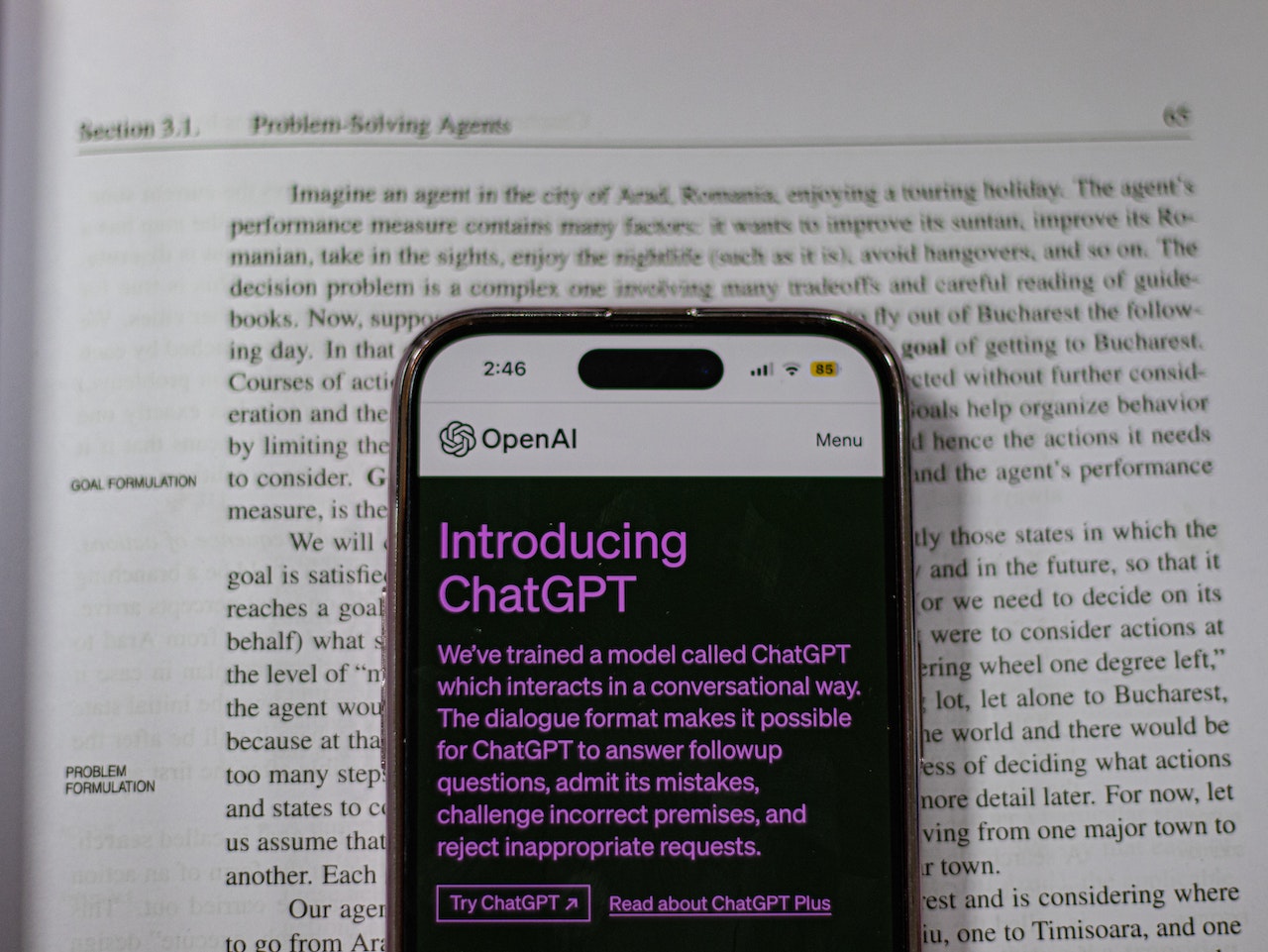Small businesses often face resource limitations and struggle to provide exceptional customer support while juggling multiple tasks. However, with the advancement of artificial intelligence (AI) technology, small businesses now have access to powerful tools like ChatGPT that can significantly improve their operations. In this article, we will explore the benefits of ChatGPT for small businesses and how it can enhance customer service, save costs and time, improve lead generation and sales, enhance user experience, provide scalability and accessibility, offer valuable data and insights, and discuss the associated challenges.
I. Introduction
ChatGPT, powered by OpenAI‘s state-of-the-art language model, is an AI-based chatbot that utilizes natural language processing to simulate human-like conversations. It can understand and respond to user queries, provide relevant information, and engage in interactive dialogues. Small businesses can leverage ChatGPT to automate customer interactions and provide personalized support.
Chatbots have become increasingly important for small businesses, as they enable round-the-clock availability and improve customer satisfaction. With the ability to handle multiple conversations simultaneously and offer accurate responses, ChatGPT can significantly enhance various aspects of small business operations.
II. Enhanced Customer Service
One of the primary benefits of implementing ChatGPT is the improvement in customer service. Small businesses can provide instant assistance and support to their customers, regardless of the time of day. Here’s how ChatGPT contributes to enhanced customer service:
1. 24/7 availability
ChatGPT operates tirelessly, catering to customer queries even outside regular business hours. Customers can receive immediate responses, eliminating the frustration of waiting for a human representative.
2. Quick response time
ChatGPT’s ability to process and respond to inquiries in real-time ensures swift resolutions to customer issues. This quick response time leaves a positive impression on customers, fostering loyalty and satisfaction.
3. Personalized interactions
By leveraging customer data and previous interactions, ChatGPT can provide personalized recommendations and tailored responses. This level of personalization makes customers feel valued and understood.
III. Cost and Time Savings
Implementing ChatGPT can lead to significant cost and time savings for small businesses. By automating certain tasks and streamlining operations, businesses can allocate their resources more efficiently. Here are some ways ChatGPT can help small businesses save:
1. Automation of repetitive tasks
ChatGPT can handle routine inquiries, such as providing product information, order status updates, or frequently asked questions. This automation reduces the burden on customer support agents, allowing them to focus on more complex issues.
2. Reduction in customer support costs
By shifting a portion of customer interactions to ChatGPT, businesses can reduce the need for additional support staff. This cost-saving measure is particularly beneficial for small businesses with limited budgets.
3. Increased efficiency and productivity
With ChatGPT handling routine tasks, customer support agents can dedicate their time to resolving more intricate customer issues. This increased efficiency leads to higher productivity and better resource allocation.
IV. Improved Lead Generation and Sales
In addition to customer service improvements, ChatGPT can play a vital role in lead generation and sales for small businesses. By acting as a virtual sales assistant, ChatGPT can boost conversions and revenue. Here’s how:
1. ChatGPT as a sales assistant
ChatGPT can engage website visitors, initiate conversations, and guide potential customers through the sales funnel. It can provide product recommendations, answer queries, and offer incentives, effectively driving conversions.
2. Proactive customer engagement
Using proactive prompts and targeted messaging, ChatGPT can initiate conversations with visitors who show intent or are at critical points in the buying journey. This personalized approach increases the likelihood of sales and customer satisfaction.
3. Enhanced lead qualification
ChatGPT can gather valuable information from potential customers through interactive conversations. By qualifying leads and collecting relevant data, businesses can prioritize their sales efforts and focus on high-quality prospects.
V. Enhanced User Experience
Providing a seamless and intuitive user experience is crucial for small businesses to retain customers and foster loyalty. ChatGPT contributes to an improved user experience in the following ways:
1. Natural language processing capabilities
ChatGPT’s advanced natural language processing enables it to understand complex queries and provide accurate responses. Users can interact with the chatbot in a conversational manner, making the experience more human-like.
2. Easy and intuitive interactions
Small businesses can design ChatGPT to have a user-friendly interface and intuitive conversational flow. This ensures that customers can navigate the chatbot effortlessly, obtaining the information they need without frustration.
3. Instant and accurate information
ChatGPT’s ability to access and retrieve data quickly ensures that customers receive accurate and up-to-date information. This reduces the need for manual research and enhances the overall user experience.
VI. Scalability and Accessibility
For small businesses with growth aspirations, scalability and accessibility are vital considerations. ChatGPT offers the following advantages in this regard:
1. Handling multiple conversations simultaneously
Unlike human agents, ChatGPT can manage numerous conversations simultaneously without compromising response times or quality. This scalability ensures that businesses can cater to a growing customer base effectively.
2. Language support and localization
ChatGPT supports multiple languages, allowing small businesses to serve diverse customer demographics. Additionally, it can be localized to specific regions, enabling businesses to deliver tailored experiences to their target markets.
3. Integration with various platforms
ChatGPT can be seamlessly integrated into websites, messaging apps, and social media platforms, expanding its reach and accessibility. This flexibility ensures that customers can engage with the chatbot through their preferred channels.
VII. Data and Insights
Utilizing ChatGPT can provide small businesses with valuable data and insights that can inform decision-making and drive growth. Here’s how ChatGPT contributes to data-driven strategies:
1. Analytics and reporting capabilities
ChatGPT can generate analytics and reports on customer interactions, including popular queries, customer satisfaction levels, and conversion rates. These insights help businesses identify trends and make data-backed decisions.
2. Customer behavior analysis
By analyzing customer interactions, businesses can gain insights into customer preferences, pain points, and behavior patterns. This understanding enables targeted marketing campaigns and personalized offerings.
3. Decision-making support
The data collected through ChatGPT can assist small businesses in making informed decisions regarding product development, marketing strategies, and customer support improvements. This leads to more effective and successful business operations.
VIII. Challenges and Limitations
While ChatGPT offers numerous benefits, it is essential to acknowledge and address the challenges and limitations associated with its implementation. Small businesses should be aware of the following considerations:
1. Language limitations
Although ChatGPT supports multiple languages, there may be limitations in understanding complex or industry-specific terminology. Small businesses must ensure that the chatbot’s training data aligns with their specific domain.
2. Reliance on training data
The effectiveness of ChatGPT depends on the quality and diversity of its training data. Small businesses should invest time and effort in curating and refining training data to optimize the chatbot’s performance.
3. Ensuring privacy and security
ChatGPT interacts with customers and collects data, making privacy and security crucial considerations. Small businesses must implement robust measures to protect customer information and comply with relevant data protection regulations.
IX. Conclusion
ChatGPT offers significant benefits for small businesses, ranging from enhanced customer service to improved lead generation and sales. By leveraging AI-powered chatbots, small businesses can streamline operations, save costs and time, and provide a superior user experience. However, it is essential to consider the challenges and limitations associated with implementing ChatGPT to ensure its effective and secure utilization.
FAQs
- How does ChatGPT handle sensitive customer information?
- ChatGPT does not store or retain customer information unless explicitly designed and programmed to do so. It prioritizes user privacy and can be configured to anonymize or delete conversations.
- Can ChatGPT be integrated with existing customer support systems?
- Yes, ChatGPT can be integrated with various customer support systems, including live chat platforms, ticketing systems, and CRM software. This integration facilitates seamless communication and data synchronization.
- What industries can benefit from ChatGPT?
- ChatGPT can benefit a wide range of industries, including e-commerce, hospitality, healthcare, finance, and more. Any business that aims to enhance customer interactions and automate support processes can leverage ChatGPT.
- Is ChatGPT suitable for small businesses with a limited budget?
- Yes, ChatGPT can be a cost-effective solution for small businesses. It reduces the need for additional customer support staff, automates tasks, and provides round-the-clock availability without incurring significant expenses.
- How can small businesses ensure the accuracy of ChatGPT’s responses?
- Small businesses can continuously monitor and review ChatGPT’s responses to identify areas for improvement. Regularly updating and expanding the chatbot’s training data helps improve accuracy and ensures relevant and reliable responses.





